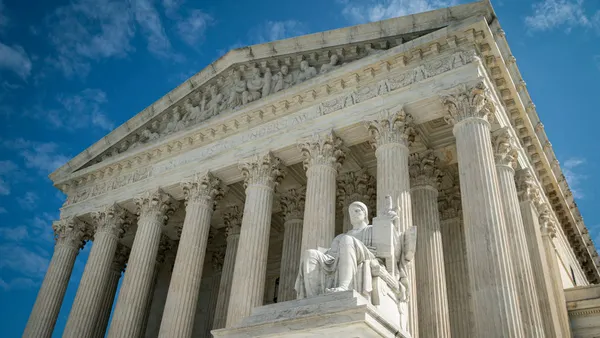Dive Brief:
- Philadelphia became the first U.S. city to prohibit private sector employers from asking job candidates about their wage history, reports SHRM. The law’s purpose is to close the pay gap between women and men. On Jan. 23, Mayor Jim Kenney signed the law, which will take effect in May.
- SHRM says the law forbids employers from asking job candidates about their pay history or making the revelation of pay history a condition of employment.
- Employers are also prohibited from retaliating against candidates who don’t reveal their previous wages. And if employers discover prospective hires’ pay histories, they can’t use that information to make hiring decisions unless candidates freely disclose it, says SHRM.
Dive Insight:
Philadelphia’s decision to close the pay gap is commendable, and it follows a similar law passed by Massachusetts last year. However, Philadelphia's law is now part of the Philadelphia Fair Practices Ordinance, which loosely defines “employer.”
As SHRM notes, it’s unclear whether the law applies to only employers operating within the city or to employers who operate elsewhere but recruit Philadelphia-area candidates. Employers might be confused about whom the law covers once it’s enacted.
SHRM cites a U.S. Census Bureau figure showing that more legislation might be needed to close the pay gap: Women in Pennsylvania earn 79 cents on every dollar men earn. And minority women earn even less.
Employers can take steps to close the gender pay gap without waiting for government mandates. HR can work with managers to review employees’ pay rates and identify any gender disparities.









